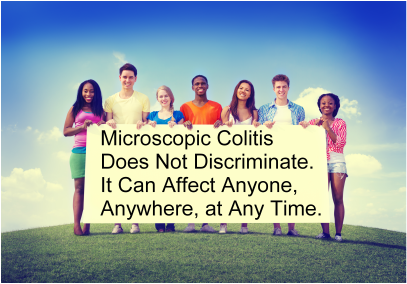by Wayne Persky |
Is this a part of the reason why women autoimmune patients outnumber men 4 to 1?
A review of previously published literature regarding health-related quality of life (HRQL) associated with food allergies, revealed a distinct gender bias. The study, published in Clinical and Experimental Allergy, showed that HRQL associated with food allergies, deteriorated more for females, than for males (Rosser, et al., 2024).1 According to the original article, data for the study was gathered by doing systematic searches of Medline and Embase databases. The first search was conducted on April 4, 2022, and a second search was done on December 5, 2023, to provide updated data.
Eligibility for inclusion in the review required that the original reported data had to report IgE mediated food allergies as determined by a validated testing method, and it had to show an association with HRQL according to either gender. Studies were accepted for inclusion whether they included treatment intervention, or not. Note that IgE based immune reactions are true allergic reactions that occur within a few seconds to a few minutes of exposure, and can result in anaphylactic reactions.
Eligibility for inclusion in the review required that the original reported data had to report IgE mediated food allergies as determined by a validated testing method, and it had to show an association with HRQL according to either gender. Studies were accepted for inclusion whether they included treatment intervention, or not. Note that IgE based immune reactions are true allergic reactions that occur within a few seconds to a few minutes of exposure, and can result in anaphylactic reactions.
Food sensitivities associated with MC typically don't cause IgE reactions.
IgE reactions are certainly possible for microscopic colitis (MC) patients, because 70 to 80% of immune cells are located in the gut, but most food sensitivity reactions associated with MC are typically IgA based reactions, and they tend to occur from a few hours to as much as a day or so after exposure, although most food sensitivity reactions (especially reactions due to gluten exposure) occur within a timeframe of approximately 3 to 6 hours after exposure.
34 original studies met the criteria for inclusion in the review. Of these, 10 studies involved immunotherapy treatments, and 24 studies did not involve any treatments. After compiling the data, the review showed that 62.5% of pediatric studies, and 83.3% of adult studies indicated that self-reported HRQL was poorer for females, than males.
34 original studies met the criteria for inclusion in the review. Of these, 10 studies involved immunotherapy treatments, and 24 studies did not involve any treatments. After compiling the data, the review showed that 62.5% of pediatric studies, and 83.3% of adult studies indicated that self-reported HRQL was poorer for females, than males.
What does this imply?
Although this was not a part of the study (therefore, it's purely speculation) we can surmise from the overall conclusions of the review that because females' perception of their HRQL is lower than their male counterparts, their risk of depression and chronic stress is therefore likely to be higher than their male counterparts. If this is, indeed, the case, then the state of mind resulting from a lower HRQL assessment, would likely lead to an increased risk of inflammation, which could lead to an increased risk of developing autoimmune disease, raising the possibility that the gender bias associated with food allergies, may be a basic reason behind the statistical observation that among autoimmune patients, women outnumber men 4 to 1.
But this appears to be a, "Which came first, the chicken or the egg?" situation , since the inactivation of the duplicate X chromosome described in the previous article may well cause women to have a predisposition to a reduced HRQL.. Regardless of the details of how they are associated, surely these two issues are connected.
Furthermore, if this is true for food allergies (IgE based reactions), then it's probably true for food sensitivities (IgA based reactions), such as those associated with MC, and many other autoimmune diseases, as well.
But this appears to be a, "Which came first, the chicken or the egg?" situation , since the inactivation of the duplicate X chromosome described in the previous article may well cause women to have a predisposition to a reduced HRQL.. Regardless of the details of how they are associated, surely these two issues are connected.
Furthermore, if this is true for food allergies (IgE based reactions), then it's probably true for food sensitivities (IgA based reactions), such as those associated with MC, and many other autoimmune diseases, as well.
References
1. Rosser, S. A., Lloyd, M., Hu, A., Loke, P., and Tang, M. L. K. (2024). Associations between gender and health-related quality of life in people with IgE-mediated food allergy and their caregivers: A systematic review. Clinical & Experimental Allergy, 00, pp 1–16. Retrieved from https://onlinelibrary.wiley.com/action/showCitFormats?doi=10.1111%2Fcea.14450

 RSS Feed
RSS Feed 

